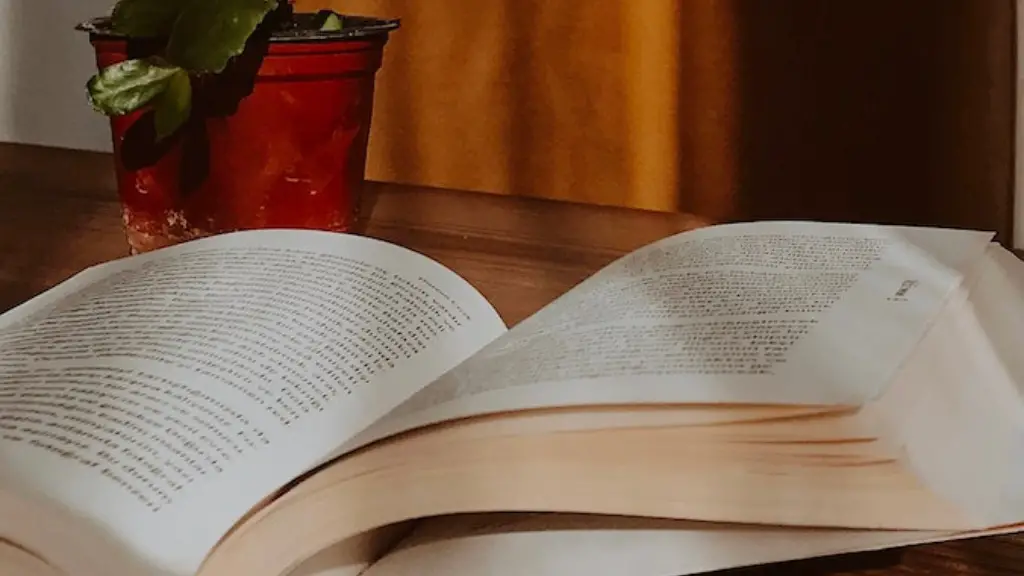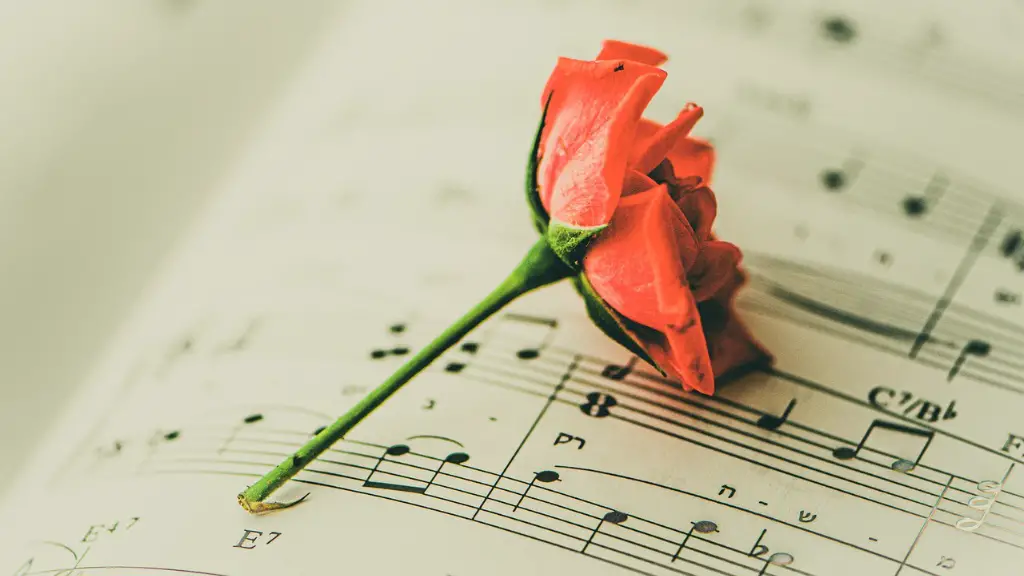Understanding Poetry
Simply put, poetry is a type of art which uses words to create images, tell stories and express emotions. Although it comes in many different forms depending on the country or culture, it all revolves around the same concept: to express in a creative and often abstract way with language. To write great poetry, one must first have an appreciation and understanding of poetry itself, its history and its various forms. Poetry is an ancient art form and has gone through numerous changes over the centuries.
To get a better understanding of poetry, it is important to be familiar with its common forms, such as sonnets, villanelles, haikus, sestinas and others. Each of these forms has distinct features and requires a unique writing style. To write great poetry, one must understand how to apply the particular techniques and characteristics of these forms and how to use the language; for example, the rhythm, rhyme and alliteration, which are all elements of poetry.
The Creative Process
The creative process behind great poetry is as important as understanding the form and language. First of all, it is essential to have a good idea and concept in mind before starting. Even if the idea is simple, it is important to think carefully about the words and the images they will create in the reader’s mind. As poetry relies heavily on the idea and emotion behind the words, the concept must be clear and creative.
Once the concept has been settled, there are numerous approaches to crafting the poem: one can start with the structure, or write down words and phrases to capture the feeling behind the concept, or simply just start writing. However, it is important to ensure that the poem features some kind of coherence and communication, so it should be constantly reviewed and adjusted if necessary. Good poetry communicates something to the reader, and this communication should be clear.
One of the most important elements of great poetry is the use of figurative language. Using metaphors, similes and other clever wordplay is essential to create beautiful images and evoke emotions in readers. Through the use of these tools, one can easily craft a poem which captures the imagination and speaks to the heart.
The Finishing Touches
Although the creative process is important, great poetry must also be brought together by neat details. To have an original, great poem, one must pay attention to the small things, such as correct spelling and punctuation, as these can make a big difference when it comes to communicating an idea or emotion. Also, while it is important to use aesthetically pleasing words and rhymes, it is crucial to make sure that the poem still flows and that one’s writing style is consistent throughout.
Finally, since the aim of poetry is to convey an emotion or idea, it is important to consider how the poem will sound. Great poetry is often written for performance, and its words can come alive when read aloud. Thus, it is important to think beyond the beauty of the written words and consider how they sound when spoken. How can one use the language to create powerful images and captivate the audience?
Taking Inspiration
Taking inspiration from the work of writers, poets, and artists can be an invaluable tool for great poetry. Reading the work of those who have mastered their art can help one understand the techniques and tricks involved in writing great poems. It is also important to incorporate personal experiences, real-life stories, and knowledge in one’s poetry. By weaving these into the poem, one can make it more interesting and unique, as well as evoke greater emotions in readers.
It is also a good idea to write for a particular reason. Whether it is to honor someone special or to create awareness of an issue, the motivation behind the poem can make a big difference. Once the purpose is determined, it is much easier to craft a meaningful poem that speaks to the reader.
Using Emotional Triggers
Using emotional triggers is an essential part of writing great poetry. Through the use of certain words, phrases and descriptions, one can bring out strong emotions in the reader. This can have an incredible effect on the poem, as words and phrases can carry a lot of significance and meaning. These will make the poem more powerful and relatable to the reader, thus making it great.
Some examples of emotional triggers that can be used in great poetry are words such as ‘hope’, ‘love’, ‘dreams’ and ‘loss’. These words instantly evoke strong emotions for readers, making the poem more powerful and meaningful. In the same way, one can also use imagery to create strong pictures and evoke emotions in the readers.
Consistency
Consistency is key to writing great poetry. One of the main challenges writers must face is to maintain the same style and level throughout their poem. An important part of this is to use the same language and literary devices throughout the poem; one should not overload their poem with words such as metaphors, similes, and allusions just to give it an artistic look. Doing this may result in an overly disjointed and scattered poem that lacks emotion, making it not so great after all.
Another way to ensure consistency is to constantly evaluate and adjust the poem as it is being written. As one goes along with the writing, it is important to determine whether or not the poem works, and if necessary, add or remove words, phrases or images to make it better.
Having a Good Knowledge of Poetry and Language
Having a good knowledge of the language and poetry style is also essential for writing great poetry. It is important to understand the various techniques and tropes that have been used before and learn how to apply them effectively in one’s own poems. This will help make the poem more creative and powerful.
In addition, having a good understanding of grammar, syntax, and usage will help make the poem more professional and polished. For example, it is important to avoid the passive voice and use active voice instead to make the poem more direct and meaningful. Also, using complex and advanced grammatical structures can help make the poem more sophisticated and enjoyable for the reader.
Developing Writing Skills
Writing great poetry requires one to constantly improve and hone their writing skills. Writing is an art, and to produce great poems one must practice writing constantly and hone the craft. Regular practice will help one become more confident and creative with their writing, and make it easier for them to craft great poetry.
In order to improve one’s writing skills, it is important to read and study the work of other great poets. By doing this, one can understand the various styles and tricks that have been used, and apply them to their own writing. Also, one must never be afraid to experiment with different forms and styles, as this can help broaden one’s writing capabilities.
Encouraging Fellow Poets
It is also important to encourage fellow poets. Writing can be a lonely process, and by encouraging other writers and offering constructive advice, one can make a difference to the quality of poetry being produced. Also, by connecting with other writers and poets, one can learn from them and share ideas, techniques, and even critique one another’s work. This can be a great way to develop one’s writing skills and write great poetry.
The Importance of Adjusting to Different Audiences
Writing great poetry also requires one to adjust their writing to the different types of audiences likely to read the poem. It is important to consider how one’s words will be received and how the readers will interpret them. By understanding the expectations of different types of audiences, one can better craft their poem to suit their purpose and evoke the right emotions.
Moreover, different types of audiences usually have different types of experiences and backgrounds, thus it is important to be sensitive to their needs. Utilizing language which is appropriate for one’s audience and avoiding alienating words and phrases can help make the poem more universally accepted.
Marketing Poetry
Marketing is also an important part of writing great poetry. After all, if one’s poem is never read by anyone, then it will never be appreciated. One must think of ways to promote their poems and let as many people as possible know about it. This can be done through social media, networking, writing competitions, and other means.
In addition, one should always strive for quality, conforming to standards and engaging in constructive feedback to get better at what they do. By always striving for excellence, one can ensure that the poem is of top quality and has the potential to reach a wider audience.





